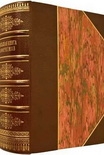Myths and Legends of China E. Werner (best reads of all time .TXT) 📖

- Author: E. Werner
Book online «Myths and Legends of China E. Werner (best reads of all time .TXT) 📖». Author E. Werner
Dragon-gods
The dragon is also represented as the father of the great emperors of ancient times. His bones, teeth, and saliva are employed as a medicine. He has the power of transformation and of rendering himself visible or invisible at pleasure. In the spring he ascends to the skies, and in the autumn buries himself in the watery depths. Some are wingless, and rise into the air by their own inherent power. There is the celestial dragon, who guards the mansions of the gods and supports them so that they do not fall; the divine dragon, who causes the winds to blow and produces rain for the benefit of mankind; the earth-dragon, who marks out the courses of rivers and streams; and the dragon of the hidden treasures, who watches over the wealth concealed from mortals.
The Buddhists count their dragons in number equal to the fish of the great deep, which defies arithmetical computation, and can be expressed only by their sacred numerals. The people have a more certain faith in them than in most of their divinities, because they see them so often; every cloud with a curious configuration or serpentine tail is a dragon. “We see him,” they say. The scattering of the cloud is his disappearance. He rules the hills, is connected with fêng-shui (geomancy), dwells round the graves, is associated with the Confucian Page 210worship, is the Neptune of the sea, and appears on dry land.
The Dragon-kings
The Sea-dragon Kings live in gorgeous palaces in the depths of the sea, where they feed on pearls and opals. There are five of these divinities, the chief being in the centre, and the other four occupying the north, the west, the south, and the east. Each is a league in length, and so bulky that in shifting its posture it tosses one mountain against another. It has five feet, one of them being in the middle of its belly, and each foot is armed with five sharp claws. It can reach into the heavens, and stretch itself into all quarters of the sea. It has a glowing armour of yellow scales, a beard under its long snout, a hairy tail, and shaggy legs. Its forehead projects over its blazing eyes, its ears are small and thick, its mouth gaping, its tongue long, and its teeth sharp. Fish are boiled by the blast of its breath, and roasted by the fiery exhalations of its body. When it rises to the surface the whole ocean surges, waterspouts foam, and typhoons rage. When it flies, wingless, through the air, the winds howl, torrents of rain descend, houses are unroofed, the firmament is filled with a din, and whatever lies along its route is swept away with a roar in the hurricane created by the speed of its passage.
The five Sea-dragon Kings are all immortal. They know each other’s thoughts, plans, and wishes without intercommunication. Like all the other gods they go once a year to the superior Heavens, to make an annual report to the Supreme Ruler; but they go in the third month, at which time none of the other gods dare appear, and their stay above is but brief. They generally remain in Page 211the depths of the ocean, where their courts are filled with their progeny, their dependents, and their attendants, and where the gods and genii sometimes visit them. Their palaces, of divers coloured transparent stones, with crystal doors, are said to have been seen in the early morning by persons gazing into the deep waters.
The Foolish Dragon
The part of the great Buddha legend referring to the dragon is as follows:
In years gone by, a dragon living in the great sea saw that his wife’s health was not good. He, seeing her colour fade away, said: “My dear, what shall I get you to eat?” Mrs Dragon was silent. Just tell me and I will get it,” pleaded the affectionate husband. “You cannot do it; why trouble?” quoth she. “Trust me, and you shall have your heart’s desire,” said the dragon. “Well, I want a monkey’s heart to eat.” “Why, Mrs Dragon, the monkeys live in the mountain forests! How can I get one of their hearts?” “Well, I am going to die; I know I am.”
Forthwith the dragon went on shore, and, spying a monkey on the top of a tree, said: “Hail, shining one, are you not afraid you will fall?” “No, I have no such fear.” “Why eat of one tree? Cross the sea, and you will find forests of fruit and flowers.” “How can I cross?” “Get on my back.” The dragon with his tiny load went seaward, and then suddenly dived down. “Where are you going?” said the monkey, with the salt water in his





Comments (0)